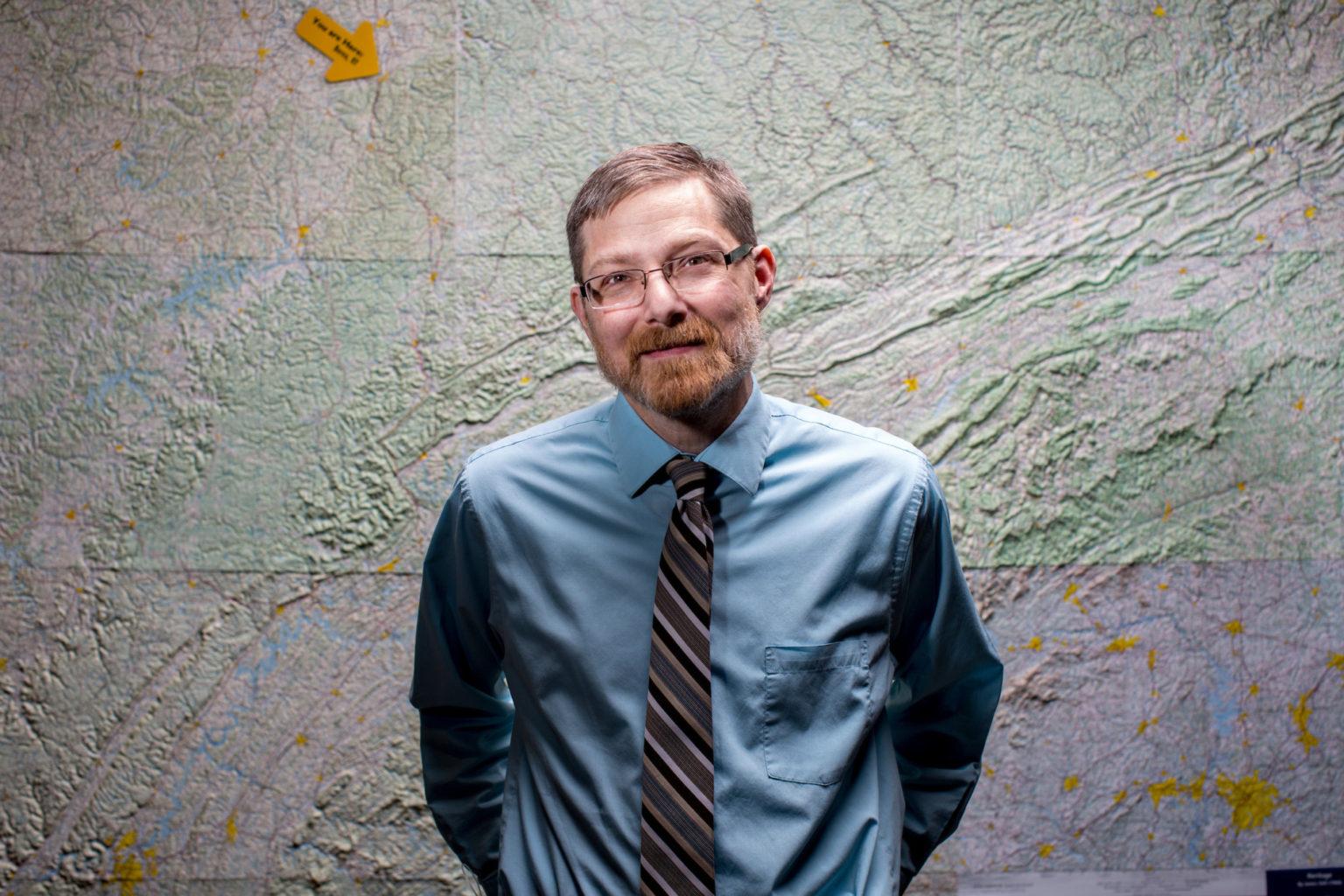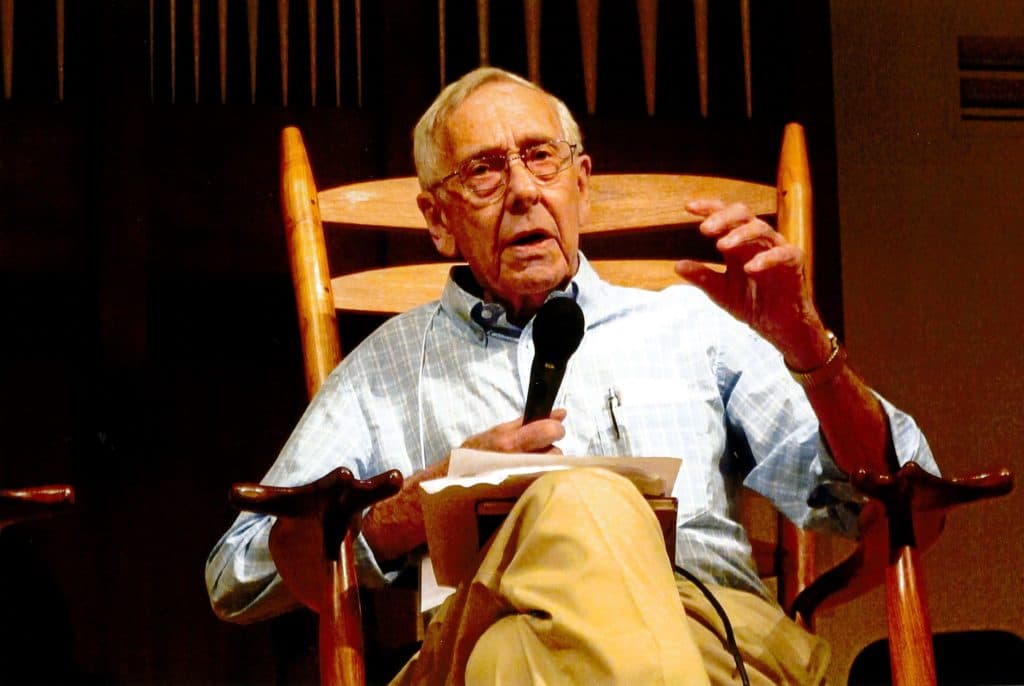
Appalachian Roots, Academic Impact: Berea College's Loyal Jones Appalachian Center
The deep and lasting ties that connect Berea College to the Appalachian region date back more than a century, forming one of the most important elements of the Berea mission. As established in the Great Commitments, “Berea College commits itself to engage Appalachian communities, families, and students in partnership for mutual learning, growth, and service.” A cornerstone of Berea’s Appalachian focus is the Loyal Jones Appalachian Center (LJAC), which anchors the College’s Appalachian Studies department, houses the Appalachian Review and Appalachian Symposium, and studies and celebrates all things Appalachian.
The founding of Berea’s Appalachian Center in 1970 was the first time that any college or university had created a center specifically focused on the study of Appalachia. In the years since its founding, LJAC has played a vital role in educating not just Berea’s students, but also its faculty and staff about Appalachia and the College’s service to the region. In addition to the Appalachian Studies courses for students that the Center offers—originally developed by Loyal Jones himself—every other year, the Center’s director leads the Appalachian Seminar and Tour, where faculty and staff travel around the region to learn about its history and meet some of Berea College’s key partners in its projects to serve Appalachia.


LJAC is also home to the Appalachian Artifacts Teaching Collection. This archive of over 5,000 artifacts is one of the most diverse multidisciplinary collections in the field of Appalachian Studies. The collection is very wide-ranging, featuring a wide array of traditional craft objects and artworks—brooms, furniture, musical instruments, textiles, and more. It also contains many items produced by Student Craft, the College Farm, and now-defunct departments like the College Dairy.
The Appalachian Center plays a wide variety of roles from day-to-day—museum, classroom, exhibition space, performance hall, and more. LJAC hosts events like the annual Celebration of Traditional Music, where traditional Appalachian musicians show off their skills, and the monthly Dinner on the Grounds, where attendees can enjoy presentations from guest experts on a wide range of Appalachian topics. But no matter what’s going on at LJAC, it’s sure to be interesting, informative, and in service to Appalachia.
Today, the Appalachian Center’s director is Dr. Chris Green, a poet and an expert on Appalachian literature. For Dr. Green, a key part of the Center’s mission is its ability to serve as a meeting-place for both Appalachians and non-Appalachians to come together, learn, and build community.

Dr. Green has high hopes for the future of the Center and how he and his colleagues can build on the achievements of those who came before: “I hope that we will continue to be a place where people can discover themselves and each other, through which they will feel further empowered to go and participate in the life of the region and the nation.”
About Loyal Jones



The late Loyal Jones ’54 has a prominent place among the many illustrious and renowned alumni who have graduated from Berea College. As one of the founding fathers of Appalachian Studies, Jones spent his life and career championing the value and significance of Appalachian lifeways and culture, working tirelessly to dismantle misconceptions and harmful stereotypes about the region. The life and legacy of Loyal Jones is a wonderful example of the amazing contributions that Berea’s students and alumni have made to the College’s mission.
Jones was born in Marble, North Carolina, to a farming family in 1928, one of eight children. After graduating from high school he entered the Navy, serving until his father became ill with typhus fever. Jones was granted a dependency discharge so that he could return home and work the family farm while his father recovered. Over the next five years, he operated the family farm and began training horses. Eventually, Jones decided to return to school and enrolled at Berea College. In 1954, he graduated with a B.A. in English.
After graduating from Berea, Loyal Jones had planned to either pursue a master’s degree or take a job with the Council of the Southern Mountains, advocating for Appalachia. Instead, he had to return to the military—Jones had been drafted into the Army. He and his wife, Nancy, were married after basic training and then he found himself shipped off to Japan. There he worked as an educational specialist, helping his fellow soldiers study for and pass their high school equivalence certificates and working with officers who were pursuing college or graduate degrees.

After his term of service ended and he returned to the U.S., Jones continued to study English. He earned his M.A. and teaching certification in 1957 from the University of North Carolina and spent the next year working as a teacher in Jefferson County, Kentucky. Jones was then approached by the executive secretary of the Council of the Southern Mountains, Perley Ayer, who asked him to assume interim leadership of the organization while he stepped back to prepare for new courses he would be teaching soon at Berea. While they had initially planned for just one year, in the end Jones led the organization for twelve, accomplishing a great deal in terms of both scholarship and direct assistance for the Appalachian region.
It was then that Berea College’s president, at the time Willis D. Weatherford Jr., asked Loyal Jones to start an Appalachian Center for the College. Jones accepted and began to build from scratch what would one day be known as Berea’s Loyal Jones Appalachian Center. In addition to the myriad administrative tasks involved with the work, Jones created and taught Berea’s three original Appalachian Studies courses: “Introduction to Appalachian Studies,” “History of Appalachian America,” and “Problems I,” an internship-based course that was the direct ancestor of today’s service-learning courses at Berea. Service-learning courses engage students in hands-on, community-focused learning that integrates academic study with meaningful service, empowering students to make a real impact.
The impact of Jones’ work still resonates today, influencing the scholars, students, and activists who have followed in his footsteps. “I think Loyal’s greatest impact on Appalachian Studies is the role he played in moving the field from thinking about Appalachia’s problems to thinking about the assets of its people and communities,” said Christopher Miller, Associate Director and Curator for the Appalachian Center. Dr. Chris Green, the Center’s current director, emphasizes Jones’ engagement with the community. “Loyal Jones was a great listener and a great storyteller. Loyal not only always had time for someone’s story, he sought them out,” he said. “In the same way, I hope our Center will continue to be a place of story sharing and exchange for all people, and that we’ll be able to bring even more people into the conversation than were here before.”
It is easy to see why people called Loyal Jones “Mr. Appalachia.” His invaluable and lifelong efforts to promote, defend, and share Appalachia with the rest of the country are a legacy that speaks for itself. That legacy is a treasured part of Berea College’s storied past—a legacy that Berea honors through its mission as it continues to offer promising students the opportunity for an education like no other, just as it once did for Loyal Jones himself.